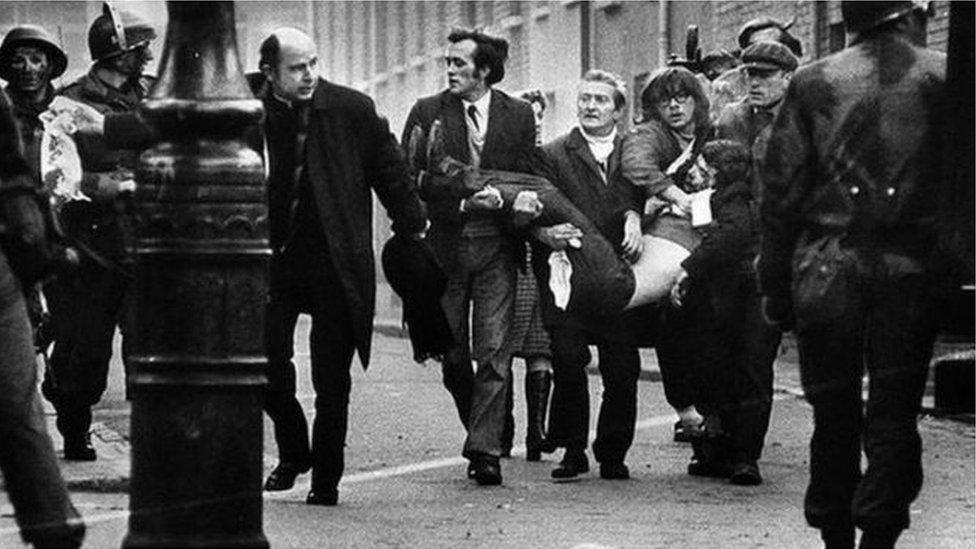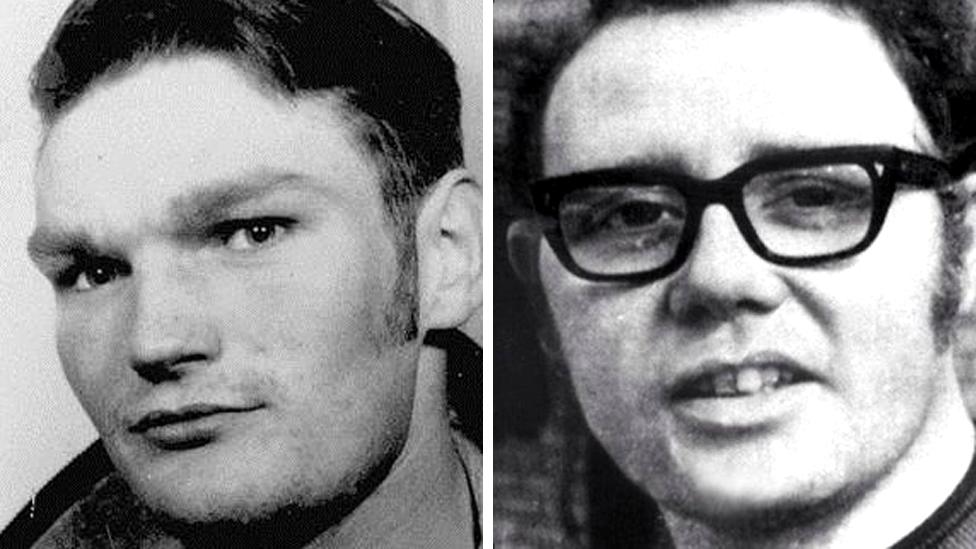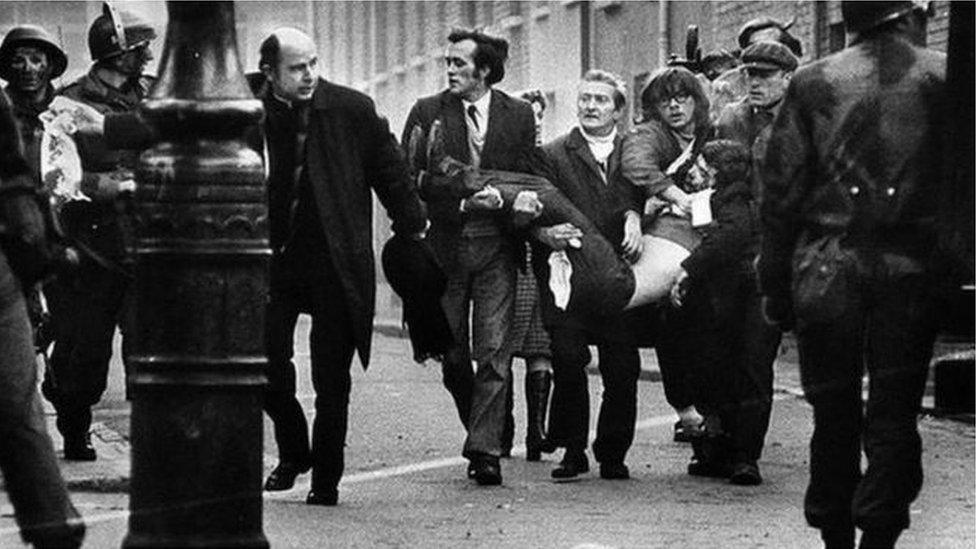Bloody Sunday: Soldier F prosecution resumes in court
- Published

Thirteen people were killed and 15 wounded on Bloody Sunday
Prosecutors have recommenced the case against a former soldier charged with two counts of murder and five counts of attempted murder on Bloody Sunday.
Last week, Northern Ireland's Public Prosecution Service (PPS) announced it was reactivating the case.
Prosecutors had decided to drop the case against the former paratrooper, however the High Court in Belfast overruled that decision in March.
The case was adjourned to 7 October following a short court hearing.
At Laganside Courts in Belfast on Wednesday, a prosecution barrister confirmed to a district judge that "we are now in a position to recommence".
The judge suggested dates in late November and December for evidence to be heard in relation to whether the case should proceed to a full trial in the Crown Court.
Thirteen people were shot dead and at least 15 others injured when members of the Army's Parachute Regiment opened fire on civil rights demonstrators in the Bogside, a predominantly Catholic part of Londonderry.
That day became known as Bloody Sunday.
Soldier F is being prosecuted for the murders of William McKinney and James Wray.

Who is Soldier F?
A former British soldier who served with the Army's Parachute Regiment in Northern Ireland during the Troubles.
Due to an interim court order granting his anonymity, Soldier F cannot be named.
Soldier F is being prosecuted for the murders of William McKinney and James Wray in Londonderry on 30 January 1972 during Bloody Sunday.
He also faces five charges of attempted murder - Patrick O'Donnell, Joseph Friel, Joe Mahon, Michael Quinn and a persons unknown - on the same date.

In July last year, prosecutors announced they were dropping the case, following the collapse of the trial of two other army veterans who were accused over another killing during the conflict in Northern Ireland.
The Bloody Sunday families said at the time the decision was a "damning indictment of the British justice system", adding they would challenge it.
Bereaved relatives then brought a successful legal challenge against the decision to discontinue the Bloody Sunday prosecution.
The court then also rejected the PPS's bid to have its appeal referred to the UK Supreme Court.
Prosecutors subsequently reviewed their position and then announced it had decided to resume the prosecution last week.

James Wray and William McKinney were among 13 people shot dead at a civil rights march
At today's hearing, the judge said he wanted the case to proceed "expeditiously" but he was "handicapped by court availability".
A date was set for a further hearing next Friday in Belfast, by which time the prosecution said it would have liaised with court authorities about the availability of the courthouse in Derry for the next stage of the case.
- Published22 September 2022

- Published6 September 2022
